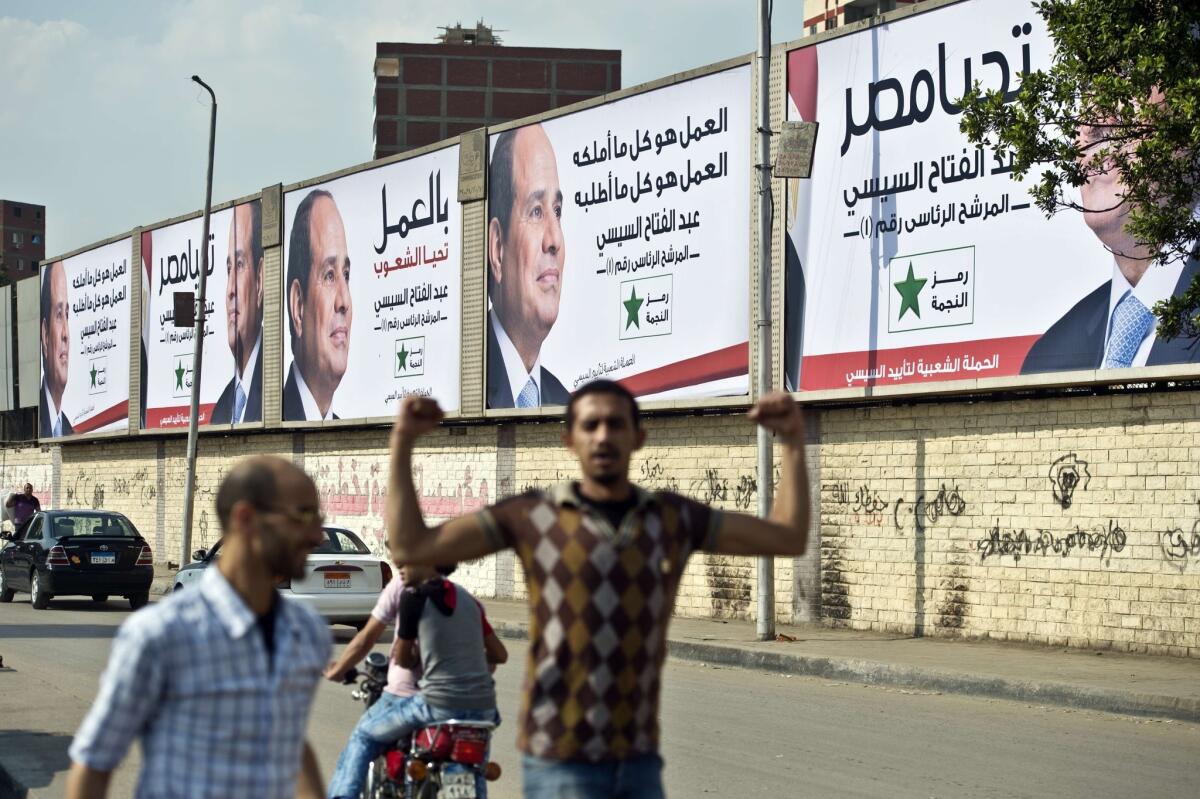Banned Egyptian youth movement will boycott this month’s election

- Share via
Reporting from Cairo — A major youth movement that was banned last month by an Egyptian court declared Wednesday it would boycott this month’s presidential vote.
The announcement by the April 6 movement added to a chorus of complaints from critics who say the election, now less than two weeks away, is stacked heavily in favor of retired Field Marshal Abdel Fattah Sisi.
Sisi led the July coup that deposed the country’s first democratically elected president, Mohamed Morsi, following massive nationwide protests demanding his ouster. The former defense chief has just one opponent in the presidential race, liberal politician Hamdeen Sabahi.
Sabahi says state institutions are being used unfairly to bolster Sisi’s already strong prospects for victory.
In advance of the May 26-27 vote, Sisi, the 59-year-old ex-military man, has scarcely appeared in public, opting instead to campaign via television interviews that appear scripted, meetings with small handpicked groups and videoconferences. Sabahi, by contrast, has held rallies around the country.
The April 6 movement, which helped spearhead the 2011 uprising that toppled Hosni Mubarak, has been targeted by authorities amid a wide-ranging crackdown on dissent that has been mainly aimed at Morsi’s fellow Islamists but has snared some secularists as well. Founding member Ahmed Maher is serving a three-year jail sentence for violating a harsh anti-protest law that took effect last year.
International human rights groups and Western governments have been highly critical of a range of repressive measures by the interim government. On Wednesday, London-based Amnesty International said torture was “endemic” in Egypt, and warned that proposed new anti-terror legislation could leave government critics even more vulnerable.
Egyptian officials have been defensive in the face of mounting criticism, warning that Western scolding only served to alienate the Egyptian people. Foreign Minister Nabil Fahmy, on a visit to London this week, said the government could not intervene in the trial of three journalists from English-language Al Jazeera broadcasting who are due back in court on Thursday on terror-related charges.
Two Britons are named in that same indictment and are being tried in absentia. Fahmy told the BBC he would be “very happy” if the journalists were acquitted, but said the interim government respected the court’s judicial independence.
More to Read
Sign up for Essential California
The most important California stories and recommendations in your inbox every morning.
You may occasionally receive promotional content from the Los Angeles Times.










